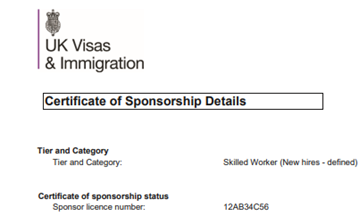Precision Instrument Makers and Repairers, classified under SOC Code 5224, are specialized technicians who play a crucial role in the manufacturing and maintenance of precision instruments. Their work is essential to various industries, particularly in the fields of horology and optics.
- Examine Drawings or Specifications: Determine appropriate methods, materials, and sequences of operation for production.
- Machine Operation: Mark out and machine materials such as aluminum, brass, steel, and plastics using machine tools including grinders, lathes, and shapers.
- Repair Diagnosis: Test watches and clocks to diagnose faults, removing, repairing, or replacing damaged and worn parts.
- Accuracy Testing: Test completed timepieces for accuracy using electronic or other test equipment to ensure functionality.
- Service Maintenance: Perform service tasks such as cleaning, oiling, and regulating instruments for optimal performance.
- Precision Measurement: Check prepared parts for accuracy using measuring equipment, assembling parts and making necessary adjustments with hand and machine tools.
- Optical Alignment: Position, align, and secure optical lenses in mounts, ensuring precision and quality in optical instruments.
- Instrument Repair: Test, adjust, and repair precision and optical instruments, maintaining the high standards expected in the field.
With the growing demand for precision instruments in various sectors, including healthcare and technology, the need for skilled Precision Instrument Makers and Repairers is on the rise. This guide aims to assist HR professionals in understanding the nuances of hiring and sponsoring these specialists under the UK’s immigration system.
What is SOC Code 3411 for Precision instrument makers and repairers?
SOC Code 5224 refers to precision instrument makers and repairers who specialize in the careful crafting and maintenance of precision instruments. Their responsibilities can include:
- Examining specifications: Reviewing drawings or specifications to determine appropriate methods, materials, and sequences of operation.
- Machining materials: Marking out and machining aluminum, brass, steel, and plastics using machine tools such as grinders, lathes, and shapers.
- Diagnosing faults: Testing watches and clocks for repairs to identify issues and remove, repair, or replace damaged and worn parts.
- Ensuring accuracy: Testing completed timepieces for accuracy using electronic or other testing equipment.
- Performing maintenance tasks: Carrying out service tasks such as cleaning, oiling, and regulating precision instruments.
- Checking precision: Verifying the accuracy of prepared parts using measuring equipment, assembling parts, and making necessary adjustments with hand and machine tools.
- Aligning optical components: Positioning, aligning, and securing optical lenses in mounts.
- Repairing instruments: Testing, adjusting, and repairing both precision and optical instruments.
Precision instrument makers and repairers are vital in ensuring the functionality and reliability of technical instruments, playing a significant role in various industries including watchmaking, scientific research, and optical technologies.
Eligibility to Hire Precision instrument makers and repairers (SOC Code 3411)
Job Requirements
Precision instrument makers and repairers must demonstrate technical expertise and meet specific qualifications or experience criteria. These may include:
- Technical Skills: Proficiency in reading and interpreting technical drawings or specifications to determine appropriate methods, materials, and sequence of operations.
- Machining Experience: Experience in machining materials such as aluminium, brass, steel, and plastics using machine tools, including grinders, lathes, and shapers.
- Repair Skills: Ability to diagnose faults and perform repairs on timepieces, watches, and clocks, including the removal, repair, or replacement of damaged and worn parts.
- Testing Knowledge: Familiarity with testing completed timepieces for accuracy using electronic or other test equipment.
- Service Capabilities: Skills in performing maintenance tasks such as cleaning, oiling, and regulating precision instruments.
- Measurement Proficiency: Expertise in checking prepared parts for accuracy using measuring equipment and assembling parts while making necessary adjustments using hand and machine tools.
- Optical Instrument Skills: Ability to position, align, and secure optical lenses in mounts, as well as test, adjust, and repair precision and optical instruments.
Ensure that the job description aligns with SOC Code 5224 and that the precision instrument maker’s experience and work meet the expectations for the role.
- Salary Thresholds
- Use the Minimum Salary Calculator to ensure your salary offer meets immigration requirements.
Sponsoring Precision instrument makers and repairers: A Step-by-Step Guide for HR Professionals
Once you’ve confirmed that the role and candidate meet the eligibility requirements, follow this step-by-step guide to sponsoring Precision instrument makers and repairers under SOC Code 5224.
Step 1: Obtain a Sponsor Licence
Before hiring non-UK Precision instrument makers and repairers, your company or institution must obtain a sponsor licence. This licence enables you to legally sponsor overseas Precision instrument makers and repairers under the Skilled Worker Visa program.
- Sponsor Licence Application: Submit documentation proving that your business is legitimate and has a genuine vacancy. Visit the sponsor licence application guide for more information.
- Sponsor Licence Fees: Small businesses typically pay £574, while larger institutions pay £1,579. For more information, visit the sponsor licence fees guide.
- Processing Time: Applications typically take up to 8 weeks, but using the Sponsor Licence Priority Service can reduce the processing time to 10 working days.
Once your sponsor licence is approved, you will receive a sponsor licence number, which allows you to assign Certificates of Sponsorship (CoS).
Step 2: Assign a Certificate of Sponsorship (CoS)
Once you have your sponsor licence, the next step is to assign a CoS to the Precision instrument makers and repairers. This document provides key details about the job and the individual being sponsored.
- Defined vs Undefined CoS: Use a Defined CoS for Precision instrument makers and repairers applying from outside the UK, and an Undefined CoS for those already in the UK. Learn more in the Defined & Undefined Certificates of Sponsorship guide.
- Required Documents: Provide details such as the Precision instrument makers and repairers’s portfolio, passport and job offer. Refer to Documents Required for Certificate of Sponsorship for a full list of necessary documents.
Step 3: Apply for the Skilled Worker Visa
Once the CoS is issued, the Precision instrument makers and repairers can apply for the Skilled Worker Visa.
- Visa Fees: Fees vary depending on the role and visa length—use the visa fees calculator to estimate the costs.
- Immigration Skills Charge: Employers are required to pay this charge as part of sponsoring non-UK workers. This is separate from visa fees.
Conducting a Right to Work Check for Precision instrument makers and repairers
Before the Precision instrument makers and repairers begins working, you must conduct a right to work check to ensure they are legally allowed to work in the UK.
- Manual Right to Work Check: Verify original documents such as the Precision instrument makers and repairers’s passport and visa.
- Online Right to Work Check: If the Precision instrument makers and repairers holds an eVisa, you can use the UK government’s online system to verify their right-to-work status.
For more details on how to perform these checks, see the right to work check guide.
Post-Hiring Responsibilities and Compliance
- Record-Keeping and Reporting
- Record-Keeping: Maintain accurate and up-to-date records of the Precision instrument makers and repairers’s employment details, salary and contact information.
- Reporting Changes: Report any significant changes to the Precision instrument makers and repairers’s role—such as promotions or salary increases—via the Sponsor Management System (SMS).
- Sponsor Licence Duties and Compliance
- Failure to comply with your sponsor licence duties can result in penalties or sponsor licence revocation, impacting your ability to sponsor future Precision instrument makers and repairerss.
How Borderless Can Help with Sponsoring Precision instrument makers and repairers
Sponsoring Precision instrument makers and repairers under SOC Code 5224 can be a complex process, but Borderless can simplify it for you. We offer comprehensive support to help you manage the entire sponsorship process.
End-to-End Sponsorship Support
At Borderless, we assist with:
- Sponsor Licence Application: Guiding you through the application process and ensuring all required documents are submitted correctly.
- Certificate of Sponsorship Assignment: Streamlining the CoS process to make hiring easier.
- Compliance Management: Helping you stay compliant with immigration laws to avoid penalties.
If you need assistance with hiring or sponsoring Precision instrument makers and repairers, get in touch for personalised support.
Conclusion
Hiring and sponsoring Precision instrument makers and repairers under SOC Code 5224 can be a rewarding way to enrich the cultural landscape of your organisation. By following the steps outlined in this guide, you can successfully navigate the sponsorship process while ensuring compliance with UK immigration laws.
For further guidance, Borderless is ready to assist you with all your sponsorship needs. Contact us for expert advice.
Automate Home Office Audits with Borderless
The Borderless platform provides a centralized system for all sponsorships, automating reminders for key tasks and ensuring best practices across your organization, simplifying audit preparation and ongoing compliance.






